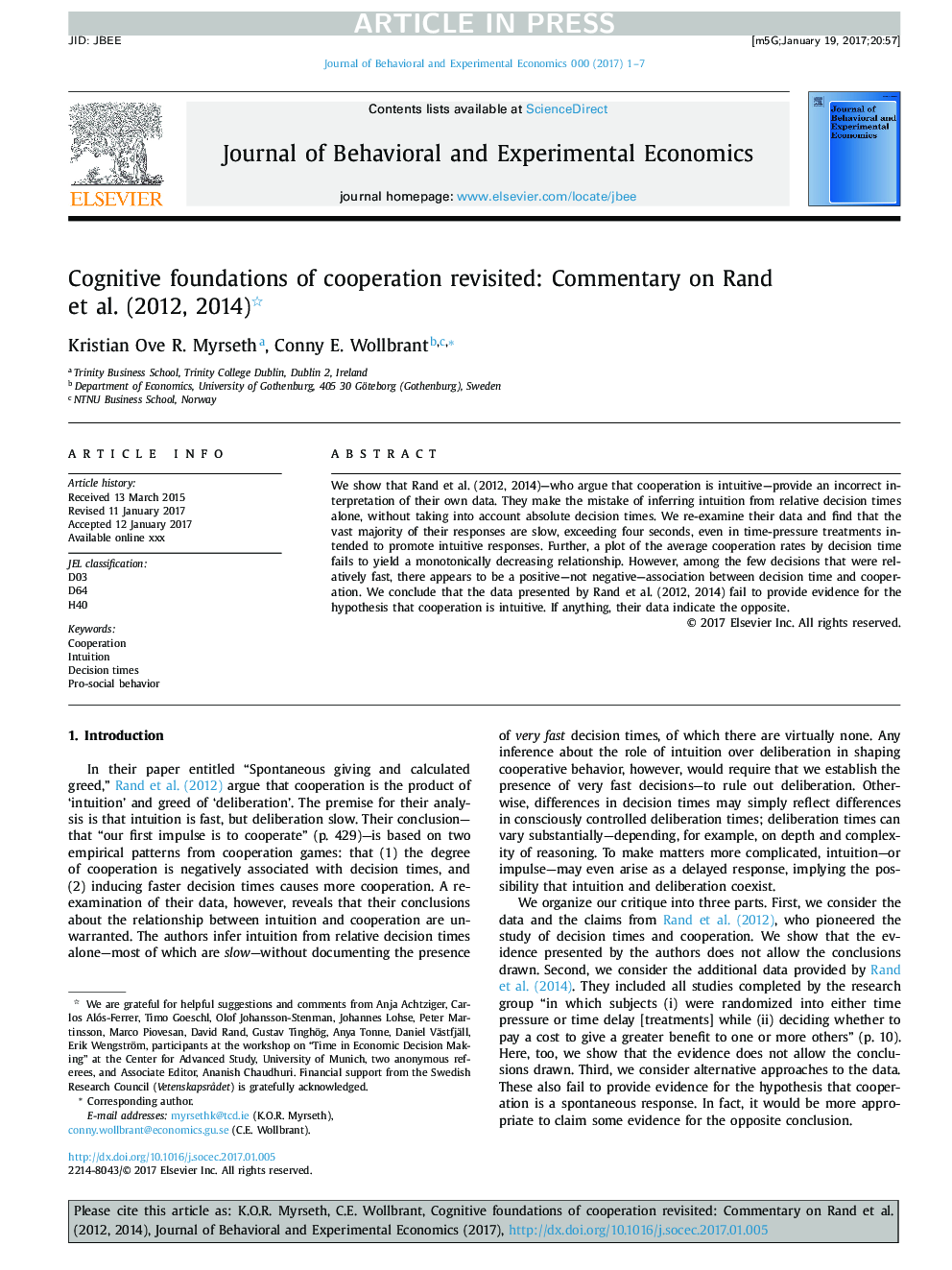| Article ID | Journal | Published Year | Pages | File Type |
|---|---|---|---|---|
| 5034130 | Journal of Behavioral and Experimental Economics | 2017 | 6 Pages |
Abstract
We show that Rand et al. (2012, 2014)-who argue that cooperation is intuitive-provide an incorrect interpretation of their own data. They make the mistake of inferring intuition from relative decision times alone, without taking into account absolute decision times. We re-examine their data and find that the vast majority of their responses are slow, exceeding four seconds, even in time-pressure treatments intended to promote intuitive responses. Further, a plot of the average cooperation rates by decision time fails to yield a monotonically decreasing relationship. However, among the few decisions that were relatively fast, there appears to be a positive-not negative-association between decision time and cooperation. We conclude that the data presented by Rand et al. (2012, 2014) fail to provide evidence for the hypothesis that cooperation is intuitive. If anything, their data indicate the opposite.
Related Topics
Social Sciences and Humanities
Economics, Econometrics and Finance
Economics and Econometrics
Authors
Kristian Ove R. Myrseth, Conny E. Wollbrant,
